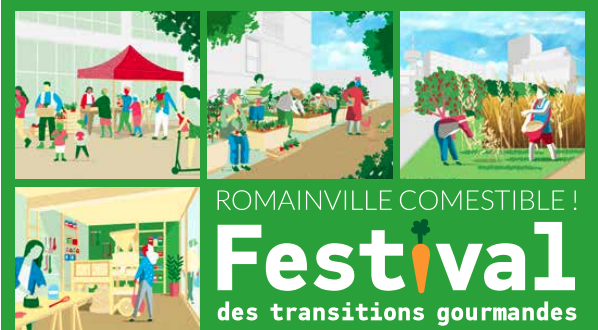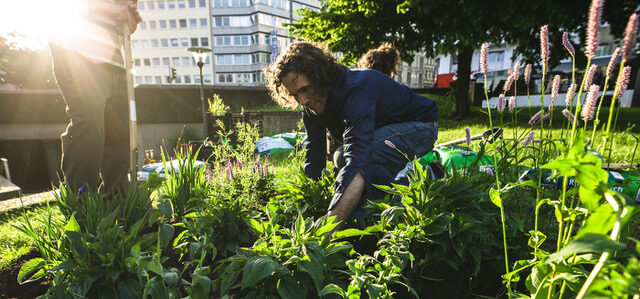The European Bank for Reconstruction and Development (EBRD) and Food and the Agriculture Organization (FAO) have been working on a technical cooperation package to support the agribusiness sector during the COVID-19 crisis, including a work area on Urban and Peri-Urban Agriculture. With more than 80 percent of food projected to be consumed in expanding cities by 2050, the need of shifting food production to urban areas is growing. But challenges multiply at the same pace.
To identify the promising areas for investment in urban and peri-urban agriculture, highlighting technologies, emerging business models and their feasibility, as well as main opportunities and risks, FAO conducted a global study that captured the current state of urban and peri-urban farming and initiated a series of online events on the topic. More than 500 market players and influencers – from both the public and private sectors – including farming companies, technology providers, research centres, real estate investors, retailers and farmers’ associations, have already been identified globally and engaged in this newly established networking platform.
After a successful launching event in November 2021, FAO and EBRD hosted on 17 December the second E-dialogue „Urban agriculture for circular cities: Space and logistic opportunities“ that gathered 130 participants from 40 countries, interested to learn more and exchange experience and insights in successful urban farming policies and initiatives. This was a unique opportunity for all to hear the voice of municipalities already engaged in urban farming such as Paris, Barcelona, Milano, Istanbul, Budapest, Sofia, Singapore, Beijing, Johannesburg, Washington, Montreal and many others, representing the five continents. Participants discussed the policies and regulation changes that enable public and private investments in urban agriculture and how the economic, social and environmental dimensions of sustainability are affected. After the opening remarks from EBRD and FAO representatives, project partners from the University of Bologna and academic institutions from Germany, Netherland, France, Spain, Hungary and Greece, moderated separated interactive discussions of participants with representatives of municipalities in four breakout rooms: Social Urban and Peri-Urban farming, Rooftop Agriculture, Agricultural parks and Vertical farming. Here participants discussed and analyzed how and to what extent local institutions and their administrations are ready to embrace commercial Urban Agriculture based on the latest technologies, and what is needed to create an enabling environment for investments.
The event was hosted by the land scape and urban horticulture international conference and the International Society for Horticulture Science, and organized in cooperation the European H2020 project Food Systems in European Cities (FoodE) and in collaboration with the sister actions “Fostering the Urban food System Transformation through Innovative Living Labs Implementation (FUSILLI)”, “Co-creating resIlient and susTaInable food systEms towardS FOOD2030 (Cities2030)”, “Building pathways towards FOOD 2030-led urban food policies (FOOD TRAILS)”, “Food System Hubs Innovating towards Fast Transition by 2030 (FoodShift2030)”and “FOOD and Local, Agricultural and Nutritional Diversity (FoodLand)”.
The urban farming is obviously gaining momentum and its active community is already nominating topics for the 2022 FAO-EBRD e-dialogues, to open up debates and shine a light on the potential pathways towards urbanizing food production.








